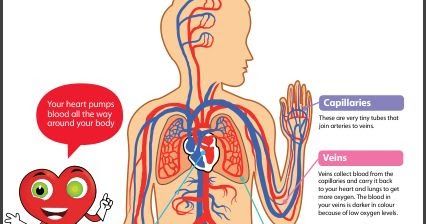
The Science Behind Cardiovascular Health
admin
- 0
Cardiovascular health is a critical aspect of overall well-being. The heart, being the central organ responsible for pumping blood throughout the body, plays a vital role in supplying oxygen and nutrients to all other organs. A healthy cardiovascular system is essential for maintaining optimal physiological functions.
Understanding Cardiovascular Health
Cardiovascular health refers to the condition and functionality of the heart, blood vessels, and circulatory system. It involves maintaining proper blood pressure, cholesterol levels, and overall heart function. Regular exercise, a balanced diet, and other healthy lifestyle choices contribute to a healthy cardiovascular system.
Anatomy of the Heart
The heart is a muscular organ located in the chest cavity. It consists of four chambers: two atria and two ventricles. The atria receive oxygenated blood from the lungs and deoxygenated blood from the body, while the ventricles pump the blood out to the lungs and the rest of the body.
The Role of Blood Vessels
Blood vessels, including arteries, veins, and capillaries, form an intricate network throughout the body. Arteries carry oxygenated blood away from the heart, while veins return deoxygenated blood back to the heart. Capillaries are tiny blood vessels that facilitate the exchange of oxygen, nutrients, and waste products between the blood and surrounding tissues.
Common Cardiovascular Diseases
Several diseases and conditions can affect cardiovascular health. These include:
1. Hypertension (High Blood Pressure)
Hypertension is a condition characterized by abnormally high blood pressure within the arteries. It strains the heart and blood vessels, increasing the risk of heart attacks, strokes, and other cardiovascular complications.
2. Atherosclerosis
Atherosclerosis refers to the buildup of plaque, consisting of cholesterol, fats, and other substances, inside the arteries. This narrowing of the arteries can restrict blood flow, leading to various cardiovascular diseases.
3. Coronary Artery Disease
Coronary artery disease occurs when the coronary arteries, which provide oxygen-rich blood to the heart muscle, become narrowed or blocked. This condition can lead to chest pain (angina), heart attacks, and heart failure.
Factors Influencing Cardiovascular Health
Several factors contribute to cardiovascular health:
1. Lifestyle Choices
Regular physical activity, a balanced diet, maintaining a healthy weight, and avoiding smoking and excessive alcohol consumption can significantly improve cardiovascular health.
2. Genetics
Genetic factors play a role in determining an individual’s susceptibility to cardiovascular diseases. Understanding one’s family history and potential genetic risks can help in disease prevention and management.
3. Stress
Chronic stress can negatively impact cardiovascular health. It may contribute to high blood pressure, inflammation, and unhealthy coping behaviors such as overeating or excessive alcohol consumption.
The Importance of Exercise in Cardiovascular Health
Regular exercise is crucial for cardiovascular health. It offers numerous benefits, including:
1. Strengthening the Heart
Exercise strengthens the heart muscle, allowing it to pump blood more efficiently throughout the body.
2. Improving Blood Circulation
Physical activity promotes the dilation of blood vessels, enhancing blood flow and reducing the risk of blood clots.
3. Lowering Blood Pressure
Engaging in regular exercise can help reduce high blood pressure, thereby decreasing the strain on the heart and blood vessels.
Conclusion
Understanding the science behind cardiovascular health is essential for taking proactive measures towards maintaining a healthy heart and circulatory system. By adopting a healthy lifestyle, regularly exercising, and managing risk factors, individuals can reduce the risk of cardiovascular diseases and promote overall well-being.

